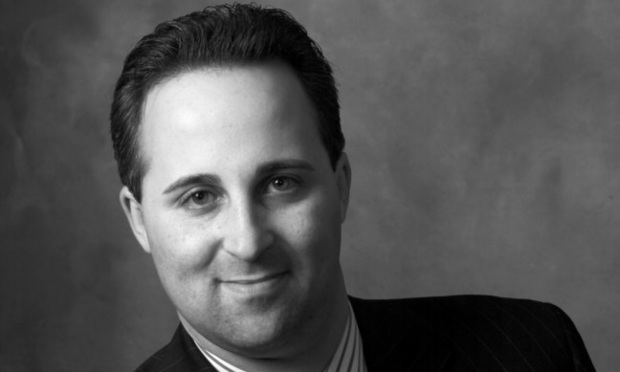Matthew B. Weisberg

June 11, 2019 | The Legal Intelligencer
Recusal: A Request That Should Not be Made LightlyThe standard of review for recusal is “abuse of discretion.” Unlike other jurisdictions, there is no statutory or rule-based procedure for recusal in Pennsylvania.
By Matthew B. Weisberg
7 minute read

March 14, 2019 | The Legal Intelligencer
Legal Malpractice: Tolling and the Statute of LimitationsThe legal malpractice negligence statute of limitations is two years. The legal malpractice breach of contract statute of limitations is four years, as in Coleman v. Duane Morris, 58 A.3d 833 (Pa. Super. 2012).
By Matthew B. Weisberg
8 minute read

December 13, 2018 | The Legal Intelligencer
Economic Loss/Gist of the Action Doctrine(s): RevisitedIn this column on attorney liabilities, this author has oft discussed the legal malpractice statute of limitations as in flux. In light of the Pennsylvania Supreme Court's recent holding in Dittman, the legal malpractice statute of limitations in light of the economic loss/gist of the action doctrine(s) (the doctrine) must be revisited.
By Matthew B. Weisberg
5 minute read

September 13, 2018 | The Legal Intelligencer
Breach of Contract Statute of Limitations as Applied to the 'Gist of the Action' DoctrineIn Coleman v. Duane Morris, 58 A.3d 833 (Pa. Super. 2012), the Superior Court precedentially established two causes arising from legal malpractice: negligence; and breach of contract.
By Matthew B. Weisberg
7 minute read

June 14, 2018 | The Legal Intelligencer
What Is the Scope of Privilege in the Legal Malpractice Context?Attorney-client and work-product privileges are commonly viewed as sacrosanct. Whether as a matter of ethics, contract, or common law, these privileges—if violated—may inure to both attorney and client even collateral damage (for example, see the current Sandusky attorney disciplinary prosecutions).
By Matthew B. Weisberg
1 minute read

March 22, 2018 | The Legal Intelligencer
Terminated Mid-Stream: What Are a Contingent Fee Lawyer's Remedies?In Meyer Darragh v. Law Firm of Malone Middleman, 137 A.3d 1247 (Pa. 2016) (Meyer I), the court previously held predecessor counsel (i.e., Meyer) was not entitled to breach of contract damages against successor counsel (i.e., Middlemen) where a contract regarding counsel fees did not exist between the two firms.
By Matthew B. Weisberg
6 minute read

September 14, 2017 | The Legal Intelligencer
'Goodyear' Puts Limit on Sanctions Remedy for MisconductEvery jurisdiction's court (federal and state) has the authority to sanction a party and its counsel for litigation misconduct. These sanctions tend to divide based on severity—from most severe to least: sua sponte (a court's inherent authority); vexatious multiplication of proceedings; frivolity; and discovery noncompliance. Each of these degrees of sanctions carry with it attendant sanctions damages. Likewise, each requires a greater level of intent (i.e., from the intentional "defilement" of the court to neglect).
By Matthew B. Weisberg
5 minute read

June 15, 2017 | The Legal Intelligencer
Legal Malpractice: Case-Within-the-Case (Whose Burden Is It?)When speaking of legal malpractice, it is necessarily preliminary to begin discussing the elements. In that discussion, the legal malpractice plaintiff's burden of proving the case-within-the-case is likewise a primary topic. That is, it is axiomatically thought that the plaintiff—who traditionally carries the burden on all elements—must prove the attorney's neglect caused the loss of the underlying action and but for that neglect the underlying action would have been successful.
By Matthew B. Weisberg
12 minute read

March 23, 2017 | The Legal Intelligencer
Legal Malpractice: Expert Testimony and Causation"A legal malpractice action is distinctly different from any other type of lawsuit brought in the commonwealth. A legal malpractice action is different because ... a plaintiff must prove a case within a case, since he must initially establish by a preponderance of the evidence that he would have recovered a judgment in the underlying action. ... It is only after the plaintiff proves he would have recovered a judgment in the underlying action that the plaintiff can then proceed with proof that the attorney he engaged to prosecute or defend the underlying action was negligent in the handling of the underlying action and that negligence was the proximate cause of the plaintiff's loss since it prevented the plaintiff from being properly compensated for his loss,'" according to J.W. Hall v. Nalli, No. 771 (Pa.Super. 2017) (unpublished) (quoting Kituskie v. Corbman, 714 A.2d 1027, 1030 (Pa. 1998)).
By Matthew B. Weisberg
16 minute read

December 16, 2016 | The Legal Intelligencer
The Professional Judgment Rule or 'Qualified Immunity'When I am not suing or otherwise representing attorneys in attorney liability matters, this firm is otherwise actively engaged in other forms of consumer protection (specifically including, civil rights and consumer fraud). In thinking about this newest column on attorney liabilities, I reflected on the overlap that gave rise to this firm's consumer-related practice areas—as those matters are defended. While this firm's practice principally surrounds financial injury, we have both prosecuted and defended personal injury matters including medical malpractice matters—which is to say another form of professional liability giving rise to individual loss.
By Matthew B. Weisberg
16 minute read
Trending Stories
- 1Call for Nominations: Elite Trial Lawyers 2025
- 2Senate Judiciary Dems Release Report on Supreme Court Ethics
- 3Senate Confirms Last 2 of Biden's California Judicial Nominees
- 4Morrison & Foerster Doles Out Year-End and Special Bonuses, Raises Base Compensation for Associates
- 5Tom Girardi to Surrender to Federal Authorities on Jan. 7
More from ALM
- Scan In Progress: Litigators Leverage AI to Screen Prospective Jurors 1 minute read
- Legal Speak at General Counsel Conference East 2024: Match Group's Katie Dugan & Herrick's Carol Goodman 1 minute read
- Legal Speak at General Counsel Conference East 2024: Eric Wall, Executive VP, Syllo 1 minute read



